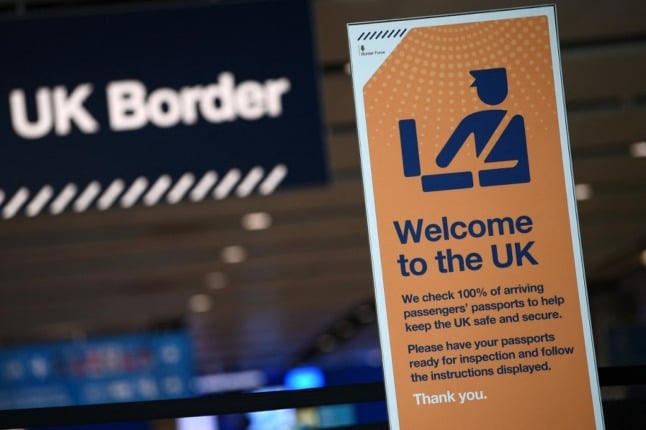Even more so among those who have established businesses here, many of which are dependent on the UK market.
Chris Myton owns two businesses – in property management and swimming pool construction and maintenance – in the southern Italian region of Puglia.
Some 70 percent of the 35 properties, owned by Italians, on his books are rented out by British holidaymakers.
His biggest concern, as the summer season gets underway, is the exchange rate and the impact its volatility will have on both his British customers and the Italian property owners.
The UK’s financial markets were still in turmoil on Monday, with the British pound plunging to a 31-year low against the US dollar. There is also pressure on the euro, with the bloc’s currency hitting a three-month low against the dollar.
“We advertise [our properties] in sterling; we did try to advertise in euros, and while it shouldn’t sound like a huge issue, a lot of people in the UK were uncomfortable with not having a fixed sterling figure on what they would pay,” Myton told The Local.
“Meanwhile, because we have advertised in sterling, the Italian owners will get less than they expected. It’s going to have an impact as clearly anyone doing business in sterling will be hit by the exchange rate.”
Ginny Bevan has lived in Italy for 20 years and owns a wedding planning business in the Lake Garda area.
“I’m feeling panicked,” she said.
“I thought the vote would be close, but I didn’t think this would be the outcome – I thought commonsense would prevail. There is also incredulity among Italians here, they’re thinking: ‘What have we done?’”
Her business is also largely dependent on the UK market.
“The exchange rate will put customers off. It will affect travel and how many guests will be able to come, which will mean smaller weddings.
“People are always more cautious anyway when planning a wedding abroad. A wedding needs to be booked in advance, and so this outcome adds to the uncertainty.”
Expats in the EU will retain their rights for at least two years as the UK and EU negotiate a “withdrawal agreement” before the real Brexit takes hold.
“Thankfully they’re not going to untie everything in one go, or maybe won't untie everything in the end,” Bevan added.
So for the most part, at least while there are more questions than answers, the outcome of the referendum has left British business owners not only feeling worried, but baffled as to why 52 percent of people voted to 'Leave'.
“Just generally, I’m massively disappointed and really concerned about the future and the economic implications,” said Emma Cuthbertson, who runs La Piccola Agency, a boutique marketing and PR agency, in Lombardy.
“It’s creating an atmosphere of instability, the pound is crashing. From a business perspective, it’s very concerning. I don’t understand why we voted out. Something as complex and important as this should not have been left to a referendum.
“I don’t know what the future holds, but just doing trade with the UK will be more difficult. It’s a step backwards, not forwards.”
Cuthbertson, who has lived in Italy for eight years and was in Spain for a decade before that, was in the UK a few days before the referendum.
“There was a really unpleasant atmosphere, it was very divided, politicians are not leading the way. Many concerning things have come from this.”



 Please whitelist us to continue reading.
Please whitelist us to continue reading.
Member comments